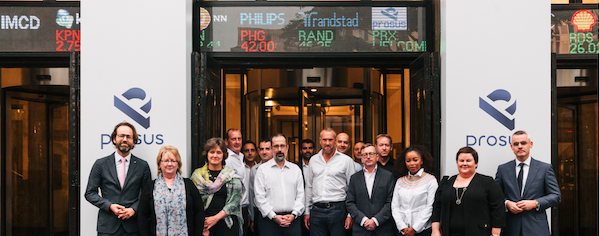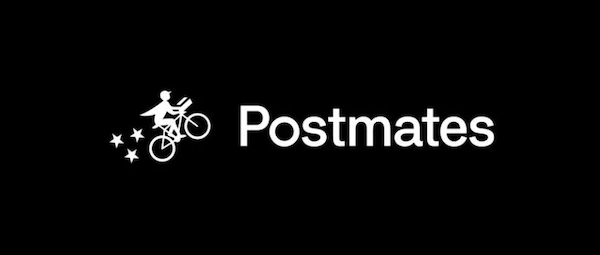Market Scorecard
So there we have it, the first half of 2020 is done. What an eventful six months! What does the second six months have in store for us? The JSE All-share is down 5% for the year, a significant improvement from the 33% loss we were facing in March. This is all in Rands of course. We started the year at $/R 14.01 and now we are at $/R 17.35, a weakening of 24%. Given that global assets are valued in USD, we probably need to measure the JSE performance in Dollars instead of Rands?
The US market for the first six months is down 4%. The tone for the next six months will be set by the numbers coming out of the US earnings season, starting in two weeks. This earnings season will give us a much clearer picture of how the lockdown impacted each company - was there a change in spending patterns and how quickly did spending return when the lockdown started to lift?
Yesterday the
JSE All-share closed up 0.41%, the
S&P 500 closed up 1.54%, and the
Nasdaq closed up 1.87%.
Our 10c Worth
Michael's Musings
On Friday evening, Naspers and Prosus released their full-year numbers. These companies are mostly interchangeable - Naspers owns 3/4 of Prosus and that stake in Prosus represents 99% of Naspers value. Generally, the market doesn't pay much attention to these results because the bulk of Prosus's value comes from its stake in Tencent, which trades on the Hong Kong stock exchange. Each day, the Tencent price changes in Hong Kong, and then the Prosus and Naspers share prices move in accordance when the European and South African markets open.
For Vestact clients, these two companies are our biggest holding by some margin, with 345 clients owning Prosus.
For the year so far, Naspers is up 35% and Prosus is up 51%, so our local clients have been well positioned to be in these stocks. This growth has been spurred by an increased adoption of technology and Prosus's strong balance sheet, which has a meaningful cash position. They are always looking for places to invest.
Here are the high level numbers, revenue up 23% and core headline earnings up 13%.
Looking specifically at South Africa, Takealot sold 46% more goods over the last year and Mr Delivery doubled the amount of food delivered. On a side note, if you own Naspers shares, you need to use Mr Delivery instead of Uber Eats. Mr Delivery happens to be cheaper too.
For the group, apart from Tencent, their big bet is on food delivery.
They plan to triple the size of their food delivery business over the next five years. So far that plan is mostly on track with the value of food being delivered doubling over the last year. They have significant operations in Europe and South America, which were some of the fasted growing regions in the world. As is the case with most technology businesses, rapid revenue growth is normally coupled with increased losses. For their food delivery business, losses increased from $171m to $624m.
Overall, Prosus and Naspers are a diversified technology company that we are very fortunate to be able to invest in. Their stake in Tencent has been called the investment of a generation, and continues to provide value to South African investors. This will continue to be a core holding for Vestact clients for the foreseeable future.

One thing, from Paul
I'm a big fan of athleisure stocks, and I've been known to come to work wearing Nike gear from top to bottom. Nike has been a Vestact recommended stock since 2012.
Another stock in this sector that I own personally is Lululemon Athletica. They are best known for their expensive yoga pants, but also make amazing running gear. I'm a #RunEveryDay athlete, so I have some experience in this department. Lululemon had $4 billion in sales last year and has a market capitalisation of just over $40 billion. It has 490 stores around the world, but none in South Africa, sadly.
Yesterday Lululemon unveiled a deal to buy at-home fitness company Mirror for $500 million. Mirror sells a $1 500 tech-enabled mirror with a camera and speakers (sort of like a sideways TV) so customers can participate in live fitness classes at home. It only launched in September 2018 and expects sales of $100 million in 2020.
Thanks to Covid-19, gyms are mostly closed, so sessions from home are all the rage. Much like Peloton stationary bicycles,
Mirror users can join live yoga and fitness classes and see on-screen information about their performance. Users can also sign up for personalised training with instructors for extra fees. Lululemon hopes to sell kit through the classes and instructors will wear Lululemon products.
After the deal closes, Mirror will continue to operate as a stand-alone company within Lululemon. Brynn Putnam, a former ballerina and Mirror's founder and chief executive, will retain her role and report to the Lululemon CEO. Lululemon stock rose on news of the acquisition. Very good!

Byron's Beats
Food delivery has been huge for Uber during this pandemic for obvious reasons. It has certainly highlighted the importance of diversifying for the business. I also believe that food delivery, be it take-out or groceries, is going to continue to thrive. Uber seem to feel the same.
They are apparently interested in buying Postmates for $2.6bn. Postmates which was established in 2011
delivers both groceries and take aways in 2 940 American cities. Like with so many similar services, it relies on a mobile app and a sophisticated delivery system.
Achieving scale is key in the race for delivery dominance. Amazon has proven that to everyone. That is why we are seeing big deals in the space, especially from SA born Prosus. Postmates is also considering an IPO so Uber have their work cut out to seal the deal.

Bright's Banter
Apple launched Apple Music five years ago, on the 30th of June 2015, so happy fifth birthday to Apple Music! This is very cute considering the fact that
Spotify was founded on the 23rd of April 2006, meaning that Spotify is a fully fledged teen which knows some things that Apple is yet to learn.
I am a die hard Macboy and
I thought that Apple Music would easily leapfrog Spotify mainly due to the fact that Apple own the rails in which Spotify runs a big portion of its business. The bigger hinderance is that Spotify has to pay a 30% toll-fee to be on Apple's rails i.e. the Apple App Store. However, Spotify has shown the resilience of a teen!
How does Spotify even begin to compete with Apple Music if they're starting 30% behind? Spotify has managed to keep Apple Music at arms-length. The toll-fee may have to be wavered in order to encourage fair competition. This is where antitrust laws are paramount in order to avoid monopolies.
The infographic below shows that
Spotify has managed to increase the gap of paid subscribers from around 20 million in 2015 when Apple Music was launched to 60 million by first quarter of 2020. According to the latest quarterly numbers, Spotify had over 130 million paying subscribers while Apple Music is estimated to have around 72 million.

You will find more infographics at
Statista
Linkfest, Lap it Up
Since lockdown, MTN has seen a rise in users on their Mobile Money (MOMO) platform. More than likely, most of these users will stick around when the world returns to normal -
MTN's mobile money reaches 1-million users in SA.
While big box office movies were delaying their releases until lockdown was over, a movie made with a budget of $0, took advantage of the vacuum and managed to top the box office sales list -
Unsubscribe: The $0-budget movie that 'topped the US box office'.
Signing off
Today the minutes from the latest Fed meeting will be released, we have US manufacturing data out and there is South African new vehicle sales for June. The JSE All-share is very slightly lower and the Rand is looking a bit stronger at $/R17.30.
Sent to you by Team Vestact



 You will find more infographics at Statista
You will find more infographics at Statista